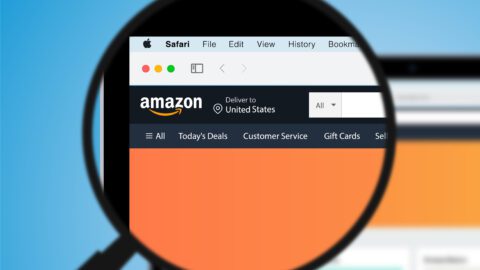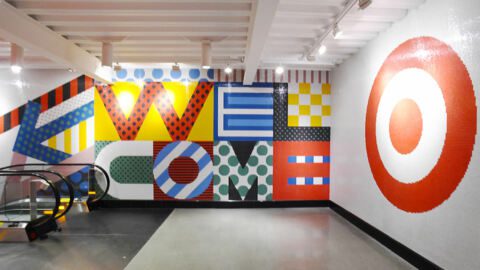Six months after the Federal Communications Commission (FCC) voted to repeal Obama-era net neutrality regulations, the ruling officially took effect June 11. With the end of net neutrality, retailers will have to navigate through an uncertain online environment. If the Internet is divided into “slow” and “fast” lanes, retailers — particularly SMBs — will be faced with a stark choice: pay more to stay in the express lane, or adjust their e-Commerce business to minimize the impact of slow load times and other performance issues.
Key predictions for the post-net neutrality era include:
- Retailers, particularly small- and medium-sized businesses, must continue their focus on product differentiation and e-Commerce optimization;
- Data-driven customer loyalty programs and other marketing programs may be harder to implement; and
- Despite the repeal, it’s still possible that retail will remain largely unaffected by ISP accessibility and speed changes.
The net neutrality rules, formalized and enacted in 2015, prohibited ISPs such as Comcast, Spectrum, Verizon and AT&T from charging more for certain content or from giving preferential treatment to certain web sites. Many argue that a deregulated Internet will mean that ISPs won’t be required to treat all data and online traffic the same. Therefore, they could charge additional fees for better services or even censor certain content from being posted online.
SMBs, Startups Would Feel Biggest Brunt
While these are all hypothetical scenarios, it’s best for retailers to understand the potential precautions they must take. SMBs and startup retailers will likely be the companies affected the most, given the costs that could be associated with paying to partner with ISPs for improved services and faster speeds. While major retailers likely will have the capital to enter the “fast lane” of the Internet, the same cannot be said for most smaller businesses. Additionally, in a competitive, tight margin business like retail, it could be difficult for companies to pass along cost increases to customers.
More than 1,000 U.S. SMBs shared their concerns about the uncertain future of the net neutrality repeal in an open letter to FCC Chairman Ajit Pai in 2017, writing: “Without net neutrality, the incumbents who provide access to the internet would be able to pick winners or losers in the market.” The companies asserted that the repeal would “directly impede an entrepreneur’s ability to start a business, immediately reach a worldwide customer base, and disrupt an entire industry.”
Brand Differentiation, Web Site Optimization Recommended For SMBs
Even as SMBs and entrepreneurs try new sales channels, such as larger third-party venues for sellers, 66% of SMBs still sell products on their own web sites — well above the total on Amazon (24%) and eBay (22%), according to data from Insureon and Manta. With the potential of their web site traffic taking a hit, these retailers must focus on product and brand differentiation as well as web site optimization. In the case of the latter, retailers must improve their personalization and product search capabilities, so consumers can find what they need without experiencing slow site load times. Experts also recommend minimizing steps in the checkout processes.
“If they can maintain that competitive edge from a product perspective and then make engaging with that digital property easy and seamless, that will help them on all of the different transaction areas,” said Jess Hilton, SVP of Client Partnership at Ansira in an interview with Retail TouchPoints. “Ultimately, the consumer is going to drive this. Millennials aren’t going to be satisfied with only having the Amazons and Walmarts of the world as the options. They’re going to still want that smaller, organic local, ‘can’t afford to join an ISP bidding war’ option.”
Customer Loyalty Programs May Take Hits Amid High ISP Costs
With data serving such a significant purpose within retail today, particularly in understanding the consumer and continuing to build a relationship with them, any potential changes to an ISP’s accessibility and speed could be costly for retailers that implement loyalty and marketing programs. These programs traditionally rely on purchase behavior or repeat customer behavior data to thrive, along with giving consumers access to additional perks that incentivize them to return. If these programs lag in convenience, consumer participation would surely dip, leading to less engagement and overall revenue.
“If you have a heavy e-Commerce business and all of a sudden the bulk of customers can no longer get to you with ease, and your guest base dramatically shifts, your program no longer has any value,” Hilton said. “Those marketing efforts would potentially need to be reevaluated and redone. I just see some major red flags in those areas that we’ll definitely need to keep eyes on as we go through this shift, to make sure that those programs are still benefitting the businesses that they support while this all shakes out.”
Net Neutrality’s E-Commerce Impact Could Be Minimal
If the slowing or even blocking of Internet traffic does take place, the biggest impact is likely to be within the online content space. But not everyone believes that such changes would significantly affect retail. Telecom companies aren’t likely to implement significant pricing model changes for retailers given the significant consumer backlash that would certainly ensue, according to Glenn O’Donnell, VP and Research Director at Forrester Research.
“Most e-Commerce traffic is lightweight,” O’Donnell said in commentary provided to Retail TouchPoints. “If carriers are going to risk a fight, this traffic isn’t worthy of such a risky PR battle.”
Additionally, since social networks and search engines generate the most traffic daily, and streaming media sites such as Netflix take up more bandwidth, ISPs would be likely to focus any service changes on these categories rather than retailers. In a blog, O’Donnell said that while carrier pricing models will change, the consumer is still impacted far more than businesses.
“Most believe (as do I) that carriers will offer premium bundles to support certain types of traffic (e.g., streaming video) that won’t be allowed on the cheap basic Internet packages they will offer (similar to what the airlines offer on their planes and hotels in their guest rooms),” said O’Donnell. “One idea floated around was a ‘shopping package’ of some sort. I don’t see that as a viable offering from the carriers because again, the traffic is relatively light. Basic Internet can support this just fine.”
Consumers Still Drive E-Commerce Direction Despite Repeal
Regardless of whether the post-net neutrality era has a major or minor effect on e-Commerce, retailers, particularly SMBs, should still educate themselves to take proper precautions — such as optimizing their web site, differentiating their product and harnessing their consumer data — to deal with potential changes that lie ahead,. Either way, the consumer’s preference is going to be the determining factor in who continues to thrive.
“If you’re an SMB it can feel a little insurmountable, but at the end of the day, I still think there’s a lot to be said that the consumer is probably going to drive the next viable solution based on their buying needs and demands,” Hilton said. “When the retailer is promoting the product and letting the consumers continue to push what it is they are needing and wanting, then the solution will continue to rise to the top.”













